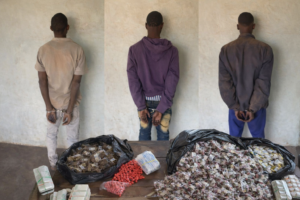Historical Context of Senegal’s Governance
The unique governance system in Senegal has evolved through a series of significant historical milestones, rooted deeply in its colonial past. Initially a part of the French colonial empire, Senegal experienced a governance structure characterized by centralized authority exercised by colonial officials. This colonial governance created a legacy that would impact the political landscape and leadership system in Senegal long after independence.
With the rise of national consciousness in the mid-20th century, various political movements began advocating for self-determination and democracy in Senegal. Prominent figures such as Léopold Sédar Senghor emerged as key leaders, embodying a vision of a post-colonial African governance system that prioritizes both cultural identity and democratic principles. Senghor’s presidency marked a critical transition from a colonial past to an independent state in 1960, establishing the foundations of a stable democracy. The adoption of a progressive constitution, coupled with the promotion of civil liberties, solidified Senegal’s commitment to democratic governance.
Furthermore, Senegal’s political history has been marked by the establishment of multiple democratic institutions which have contributed to the resilience of its governance structure. The frequent changes in political parties and the relatively peaceful alternation of power aid in reinforcing democratic norms among the Senegalese populace. Unlike many African countries, Senegal has maintained a consistent democratic trajectory, earning the respect of both its citizens and international observers. This historical context underscores how Senegal’s governance system has adapted over time, reflecting the aspirations of its people and the significant influence of past political movements and leadership transitions.
The Structure of Senegal’s Governance
Senegal’s governance is characterized by a unique governance system that integrates democratic principles at its core. The country’s political framework is primarily divided into three branches: the executive, legislative, and judicial branches, each playing a distinct role in ensuring the effective functioning of democracy in Senegal.
The executive branch is led by the President, who serves as both the head of state and government. This leadership system grants the President significant powers, including the ability to appoint government officials and implement national policy. Senegal’s Constitution outlines the President’s responsibilities, ensuring that they act in accordance with democratic values while being accountable to the citizens. The cabinet, comprised of various ministers, assists the President in managing the administration and executing laws.
On the legislative side, Senegal features a bicameral Parliament consisting of the National Assembly and the Senate. The National Assembly is composed of elected representatives who serve five-year terms, while the Senate acts as a stabilizing force with members appointed by the President and local councils. This legislative structure reflects a commitment to fostering democratic participation among the electorate, where voters influence governance through their choices at the polls.
Furthermore, the judicial branch operates independently from the executive and legislative branches, ensuring that the rule of law prevails. The judiciary comprises various courts, with the Supreme Court being the highest authority. This system of checks and balances is vital for upholding citizens’ rights and ensuring justice is administered fairly.
In addition to these central components, the local governance in Senegal is notable for its decentralization, empowering regional and local governments to make decisions that directly impact their communities. This approach amplifies citizen participation and allows for tailored solutions to regional challenges, thereby reinforcing the democratic fabric of the nation and enhancing the overall effectiveness of the unique governance system in Senegal.
Cultural and Social Influences on Governance
Senegal’s unique governance system is deeply influenced by its rich cultural heritage and diverse social fabric. The political landscape is shaped by various traditional authorities, ethnic groups, and religious organizations, each contributing to the larger narrative of governance in the country. This multifaceted influence underscores the importance of understanding the interplay between culture and politics. Traditional leaders, often revered within their communities, serve as intermediaries between the government and the populace. They play a critical role in voicing local concerns and articulating needs, thus acting as a bridge that fosters dialogue and understanding between citizens and the state.
The ethnic diversity within Senegal also significantly impacts its governance. With multiple ethnic groups, including the Wolof, Serer, and Pulaar, there exists a blend of cultural values and political perspectives. Each group’s historical experiences shape their expectations from the leadership system, which necessitates an inclusive approach to governance. This intricate tapestry promotes a sense of belonging and loyalty to their respective communities, paving the way for the crucial engagement of various stakeholders in the political process. Therefore, addressing the needs of diverse ethnic groups is essential for ensuring social cohesion and stability in the context of Senegal and democracy.
Religious organizations further enrich Senegal’s unique governance system. With a predominantly Muslim population, Islamic leaders and organizations actively engage in political discourse, often guiding ethical policymaking and community welfare initiatives. Their involvement extends to promoting social justice and accountability, reflecting a deep-rooted belief in ethical leadership and civic responsibility. Moreover, community engagement is crucial in this governance framework; civil society organizations and grassroots movements empower citizens to participate actively in governance, demanding accountability from elected officials. Overall, these cultural and social influences distinctly shape the framework of Senegal’s governance, emphasizing the necessity for collaboration among all societal segments to realize a stable and just leadership system.
Challenges and Innovations in Governance
Senegal, often celebrated for its unique governance system in Senegal, has nevertheless faced significant challenges that hinder its democratic development. Corruption remains a pervasive issue, undermining public trust and the efficacy of democratic institutions. Transparency International consistently ranks corruption as a driving force behind the erosion of good governance. The integration of effective accountability measures is essential for restoring citizen confidence and promoting a functional leadership system.
Furthermore, political polarization has surfaced as a formidable barrier, hampering cooperation among different factions within Senegalese politics. The divide among democrats has intensified, frequently resulting in a fragmented political landscape that complicates governance. This polarization can lead to an increase in protests and civil unrest, posing a threat to the stability that Senegal has historically enjoyed compared to many other countries within Africa.
However, amidst these challenges, Senegal has pioneered several innovative practices aimed at enhancing its governance framework. The application of new technologies in governance has emerged as a transformative tool capable of addressing issues of transparency and citizen engagement. Many governmental bodies are adopting e-governance platforms to facilitate efficient service delivery and reduce bureaucratic hindrances.
Additionally, participatory budgeting initiatives have gained traction, empowering citizens to have a direct say in governmental spending. This practice not only enhances accountability but also fosters a sense of ownership among citizens over public resources. Moreover, the increasing engagement of youth activists signifies a fresh and dynamic force within Senegal’s leadership system. Young advocates champion issues pertinent to their generation, pressing for reforms that reflect their aspirations and concerns.
The fusion of these innovations and reforms presents a promising outlook for Senegal’s ability to overcome its governance challenges. As it strives to enhance democratic practices, Senegal’s unique governance system has the potential to serve as a model for other nations grappling with similar issues in the African governance system.











More Stories
U.S. Embassy Banjul hosts media roundtable on bilateral relations, transparency
Banjul Mayor hails Senegal’s AFCON triumph, praises discipline, continental pride
U.S. Mission Nigeria reopens American Center with arts, culture, technology focus